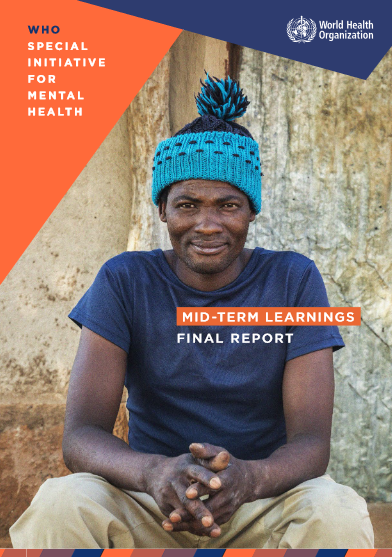
WHO Special Initiative for Mental Health
WHO’s Special Initiative for Mental Health is designed to address this service and treatment gap and move people with these conditions towards universal health coverage - in nine countries across WHOs six Regions – Argentina, Bangladesh, Ghana, Jordan, Nepal, Paraguay, Philippines, Ukraine and Zimbabwe. From its inception in 2019, countries began formative work to plan for and design a transformation in mental health services and introduce new services at the primary and secondary health care levels. The initiative also supported countries to scale-up mental health and psychosocial support during the COVID-19 pandemic.
As of the end of 2023, more than 52 million people now have access to newly available services at the local level. This massive increase has been achieved with modest financial investments; total expenditures for the initiative to date amount to US$ 25 million. Thus, for every one million dollars spent, over two million people have access to newly available mental health services in their communities. Or put another way, the cost per newly reached person is less than US$ 0.50. As such, this WHO-led Initiative is generating strong returns to much-needed investment in this area, bringing both new service capacity as well as rights-ed policies and evidence-based interventions for these often neglected health conditions.

*Figures are likely higher - countries are only tracking service uptake in selected facilities
Countries
News
Videos
Publications

WHO Special Initiative for Mental Health
External publications

Baseline situational analysis in Bangladesh, Jordan, Paraguay, the Philippines, Ukraine, and Zimbabwe...
Mental, neurological and substance use conditions lead to tremendous suffering, yet globally access to effective care is limited. In line with the 13th...


Feature stories
In 2020, One World magazine, run by the Swiss Development and Cooperation Agency (SDC), featured the "WHO Special Initiative for Mental Health" in an article called “A ticking time bomb”. The article includes stories about mental health services in three countries (Bosnia and Herzogovina, Jordan and Somalia) and describes why the Special Initiative is so timely.
Related health topics
COVID-19















